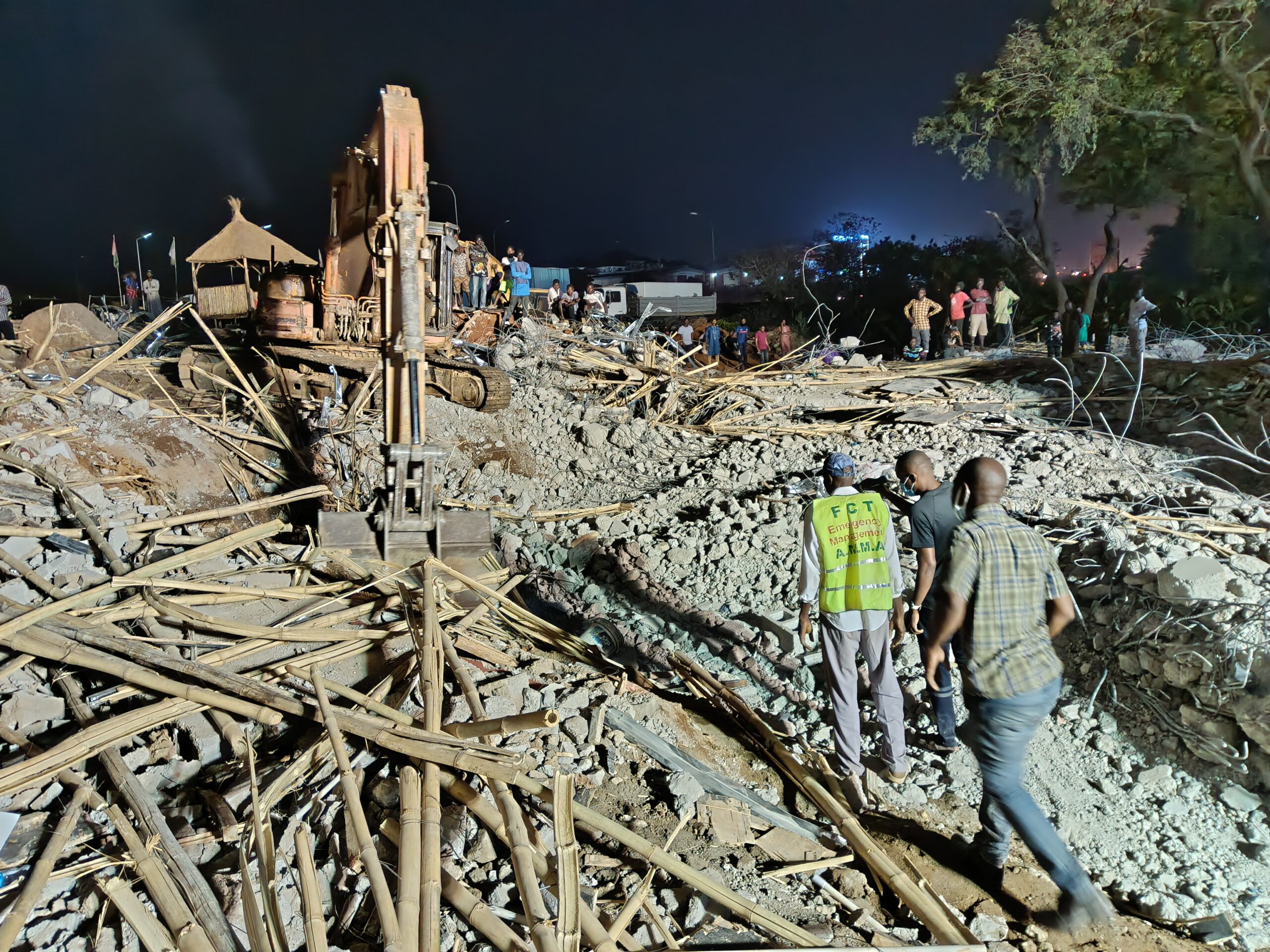What do standards look like in Nigeria after all? Where are the measuring rods? What do people aspire to? Where do people see as their destination, or at least what do people see as their journey in Nigeria?
In a country that aspires to elite status in the pantheon of developed nations, it beggars belief that Nigeria allows itself to be continuously served a diet of crumbs when its table should be full of ambrosia.
Fuel queues have recently reappeared to tag along the freshly squeezed queues for cash in many banks. Add these to Nigeria’s ponderous bureaucracy, which has been around for a very long time and it would seem at once that there is a deliberate attempt to suffocate Nigerians.
In many ways, the metaphor of a collapsing house is perfect for Nigeria – a compromised country that is primed to collapse. However, Nigeria’s recent experience of collapsing buildings has not been metaphorical at all. If anything, it has been raw, rasping and reprehensible.
Orakam community association to spend N67.5m on 450 indigents
Amotekun arrests 3 specialise in looting at construction sites
It was mostly in Lagos last year that building after building collapsed trapping many people in their ruins. While some lost their lives in the most agonising way possible, others were left to pick up the pieces of their shattered lives as surely as rubbles of the collapsed buildings were left for machines and their operators.
It is just the second month of a new year, but it would appear that Nigeria is yet to see the last about collapsed buildings or hear the last of its sickening crash.
On Thursday December 2, 2023, a two-storey commercial complex still under construction in the Gwarimpa area of Abuja collapsed killing two people and trapping many others.
The collapse brought back memories of the building collapse, which killed two persons and trapped many others in the Kubwa area of Abuja on August 25, 2022.
It is worrisome that this continues to happen and the fact that buildings continue to collapse with alarming frequency suggests that not enough is being done to check what has become a disastrous challenge.
Lagos State has seen a spike in the number of building collapses like the one that claimed no less than eight lives in the Ebutte Metta area of the state in May 2022.
Since 2005, at least 152 buildings have collapsed in Lagos, according to a South African university researcher investigating construction disasters.
According to documents obtained from the Building Collapse Prevention Guild 271 building collapses were recorded in the country in the last ten years with as many as 115 of the cases occurring in Lagos State.
Perhaps, the most notable of the cases was the collapse of a part of a multiple-storey building inside the Synagogue Church of All Nations, SCOAN, which left more than 80 worshippers dead, while several others were critically injured.
The structure, which reportedly collapsed at 12.45 pm on September 12, 2014, served as a guest house for foreigners, who usually thronged to the church in search of miracles.
A slew of factors have been blamed for the constant collapses bordering on ineptitude ranging from excessive loading, use of substandard materials, faulty design, poor workmanship and weak foundation. Yet, what is clear beyond everything else is that Nigeria can no longer afford what is an ugly stain on the face of the country.
Whenever another building collapses, Nigeria is plunged into more troubling questions and forced to plumb afresh the depths of misery.
It should not continue. It does not have to.
Kene Obiezu wrote via keneobiezu@gmail.com

 Join Daily Trust WhatsApp Community For Quick Access To News and Happenings Around You.
Join Daily Trust WhatsApp Community For Quick Access To News and Happenings Around You.


